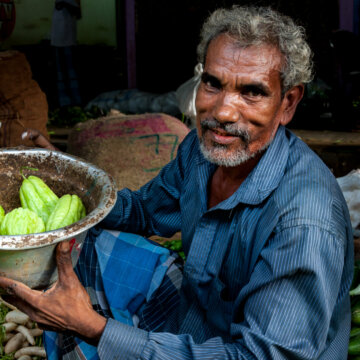- About
- Topics
- Picks
- Audio
- Story
- In-Depth
- Opinion
- News
- Donate
- Signup for our newsletterOur Editors' Best Picks.Send
Read, Debate: Engage.
Every year, the world reports an average of 600 million cases of foodborne illnesses attributed to unsafe food, which leads to 420,000 deaths; the majority of fatalities occur among marginalised and vulnerable people.
Contaminated foods kill 125,000 children yearly, in what points to the growing threat of food safety on human health.
Bacterial, viral, fungal and pesticide contaminants are all contributing to the threats to healthy food that have taken a toll on households and economies as capitalism, weak regulation and misinformation exacerbate an already dire situation for the world’s poorest communities.
Aflatoxins, for example, a highly toxic, cancer-causing substance produced by fungi, contaminates various food crops, which leads to liver cancer, child growth stunting and death when consumed in high quantities.
Over 25 percent of the world’s food crops are destroyed each year as a result of aflatoxin contamination, which further worsens food insecurity.
As the world marks World Food Safety Day, with this year’s theme being “Today’s Safe Food for a Healthy Tomorrow,” the vital role production and consumption of safe food plays in enhancing the benefits of the global population, economies and ultimately the planet cannot be overemphasised.
The clarion call is therefore to deepen collaborative efforts across governments, the private sector, scientists, food producers and consumers by ensuring the highest global food standards are put in place (and are followed by strict compliance), having a robust regulatory food control system, embracing good agricultural practices, enhancing the use of the right food management practices by food producers and business people and empowering consumers in making informed choices about healthy food options.
In line with the Sustainable Development Goals of ending hunger and promoting the health of consumers, the world must unite in ensuring food safety is promoted and protected from farm to folk.
Image: Dirk J Slotboom.

